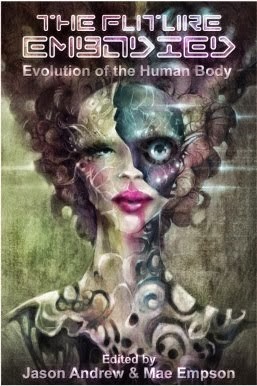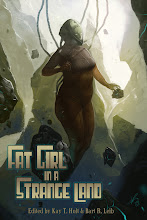We writers can be a persnickety bunch.
We can be very particular about where we write, how we write, what time of day we write etc. Idiosyncratic? Check. Introverted? Most likely. Let’s just say that our characters are usually more eloquent than we are. Put us in a group of other writers, and you never know what could happen.
In my search for local writing peers, I’ve found some wonderful people. I’ve also become acquainted with more than a few duds. Below are some general characteristics of writerly types to avoid and ways to deal if you find yourself stuck in a writing group with them.
The Fragile Newbie
This is a person incapable of seeing that criticism of their work is not an attack on their person. Usually, this is a sign of a writer who is not ready to share their work with others. They can get defensive, argumentative, or retaliate by being unnecessarily harsh on the work of those who critique them. Sometimes they may even burst into tears – very awkward when meeting in public places. In some cases, the Fragile Newbie may do none of these things, but retreat into themselves and never attend another meeting.
How to deal: Since these are writers relatively new to critique, it’s important to establish the group’s ground rules and expectations up front. Emphasize the need for constructive criticism and ensure you work with other members to create a supportive environment. It may take a few sessions for the Newbie to feel comfortable, but give it time. Everyone was a noob at one point, and you don’t want to be responsible for chasing someone off. That said, there are folks who just don’t thrive in a writing group environment. Then there are people who may never be able to handle criticism. In those cases, you may need to ask those people to leave. It may be awkward, but your group will thank you.
The Me-Me-Me Memoirist
Not all memoirists are evil, but there are a lot of people out there who reach a certain point and decide they’ve lived a life worth telling everyone about. Usually they’re wrong, and they waste valuable time in group sharing trite or pedestrian stories that have no literary value. Responses to criticism are invariably, “Well, this is how it happened” or “But it happened to me” and there’s no way you can argue with them that their story is too slow or confusing or whatever. Tears can also be an unfortunate side effect, especially for people using writing as therapy.
How to deal: If you’re in a group that allows for all kinds of writing, you're pretty much stuck. But you can suggest that if a memoirist is too close to their story, it may not be the right time for them to be seeking critique for that particular project. Sometimes memoirists join a writing group, not with the goal of publishing their life story, but sharing it with their grandkids or extended family. In this case, you need to decide if your group is geared towards “writing for fun” or “writing with the goal of publication” and choose members accordingly.
The Chronic Mess
Life happens, and it is impractical to expect every member of your group to always send in their work right when it’s due, to always be punctual at meetings, or to always read every manuscript ahead of time. No one is perfect. That said, there are those writers out there who consistently and chronically miss deadlines and shirk reading and critiquing other people’s work. They may have the best of intentions, they may be the nicest people on earth, but you cannot rely on them.
How to deal: This is really a question of how your group is structured. Do you have a group with a bunch of Type As and one Type B? Then this group may not be the best fit for your Chronic Mess member. Or is your group a bit more unstructured, allowing for lapses every now and again? Then you need to decide if the person just needs a gentle reminder to get their sh*t together or if there’s something more fundamental at work.
Remember, some members will get swamped occasionally, especially if jobs and families are in the equation. Sometimes spreading out meetings or voluntary breaks are the answer. Sometimes not. If your Chronic Mess sticks around, I suggest putting in only as much effort reviewing their work as they do for you. Hopefully they’ll get the message.
The Uber Critic
This is someone who almost never has anything good to say about anyone’s work. They have probably never heard about the
criticism sandwich or if they have, they decline to use it because they think they are that bada$$. I’ve personally dealt with two types of these: the
Craft Junkie and the
Genre Nazi. The Craft Junkie is someone who can’t tolerate work that is at all experimental or uses techniques that aren’t covered in a chapter of a craft book somewhere. The Genre Nazi is someone who has read every book under the sun in your particular area and feels like they are entitled to take you to task for how well you adhere to genre conventions. They also say things like “Well, so-and-so already did [subject] so why are you bothering with this?”
How to deal: You smile, nod, and move on. But you should also try to look past how the criticism is delivered to see if there’s anything of value buried under the bluster. Maybe you do need to tighten up your POV or reconsider the way you handled x in your manuscript. Maybe you should factor in books dealing with your subject matter, and remind yourself that not all genre conventions should be broken. The Uber Critic can be harsh, yes, but better you hear it now then when you book is sent into the cruel real world.
The Micro Editor
Otherwise known as a
Grammar Nazi, this is someone, usually with a background in journalism or technical writing, who cannot get past the minutiae of dangling participles and who/whom and various forms of comma abuse. Your work comes back to you bleeding from all the grammar gaffes they’ve uncovered, but there’s virtually no commentary on your story’s mechanics. They say things like “I just couldn’t get past all the mistakes” when pressed to comment on your work.
How to deal: Your goal should always be to send in your best work. But not all of us have perfect grammar, mistakes will be made yada yada. If you know your work is rough, say so when sharing it with the group, specifying the high-level comments you’re interested in getting back. If you meet in person, try to keep commentary on the story itself, not copyedits. I was in a meeting once where an ex-journalist wanted to go through someone’s story line-by-line. Not an effective use of group time.
The Monopolizer
This is the person who
takes takes takes in group. Getting feedback on their work is the Monopolizer’s only concern, no matter who’s turn it is. They say things like, “This reminds me of a story I wrote where…” or capitalize on any lull in the conversation to bring it back to their work. Ugg. I’ve seen this in newer writers who still haven’t realized how generous you have to be to take the time to critique other people’s work. I’ve also seen other writers so full of themselves that they think they are the best and therefore deserve to command the group’s attention at all times.
How to deal: Personally, I’d say you need to avoid the Monopolizer at all costs. Writing is hard enough without having to deal with egos or someone who can’t play nice in a group. But if that’s not possible, set boundaries. Limit the time spent on each piece in meetings, keep extraneous conversation to a minimum. Find someone in the group willing to keep the conversation moving and cut off talk that’s not productive.
Talks-the-Loudest, -Longest
This is someone who maybe can’t always handle criticism or gets defensive when the spotlight is on their work. They aren’t used to being wrong, and therefore spend a lot of time justifying their work or explaining the choices they made. I think they just like to hear themselves talk. I’ve encountered this in primarily older males (sorry guys) with backgrounds in business or law, where talking a lot is apparently how you succeed. Often exhibits traits of the Monopolizer as well.
How to deal: This is tough depending on how much personal courtesy you are willing to extend, what other group dynamics are at play. If someone is constantly defending their creative choices, maybe move to the Milford model of criticism where the writer must remain silent as the others comment on their work. Or, as with the Monopolizer, get in the habit of limiting extraneous talk.
Horace Slughorn
For the Potterheads out there, this person needs no introduction, but for the rest of you, a
Horace Slughorn is someone who collects (younger) writing group members, ostensibly to share their greater wisdom with the group, but really the arrangement is to make them feel better about themselves. Think
Twisted Mentor. Slughorns may actually have talent and/or wisdom but they take over a group instead of just participate in them. And they play favorites.
How to deal: Do you want a mentor who could help you get better, but is more interested in feeling needed by you? My advice is to run away. If that’s not possible, get what you can out of the arrangement, but do not feed the Slughorn’s ego if at all possible. Publishing is changing every day, and the “wisdom” that they’re peddling may already be out of date.
Literary Snobs and Genre Addicts
Two sides of the same coin. The folks who turn their nose up at anything that’s not literary, and those who won’t read anything that doesn’t come in a mass market paperback. And they use it as an excuse when critiquing. “Well, I only write genre fiction so I can’t really comment on literary stuff” or “How dare you pollute my mind with this drivel—I only read the classics” and so on. These people are so small minded they forget that story and character are the foundation of any work, regardless of trappings.
How to deal: Decide if you want people skewed to more genre or literary writing. If you have both, make sure everyone understands what that means in terms of critiquing. Pissing matches as to which is better do you no good. If members cannot keep an open mind when critiquing, they’ll need to take it somewhere else.
The Cheerleader
Writing is tough, so it’s always nice to know when aspects of your story are appreciated by others. Right? Well, yes. But what if someone only said nice things about everything you wrote? Either you have someone who cannot be impartial in critiquing your work or it’s someone who is unwilling to be honest with you. In the first case, maybe they really do like your work. Or maybe your skill (despite any flaws) far outpaces their abilities, and they can’t help but be complimentary. In the second case, the writer is not confident in their own writing ability and is therefore unwilling to be overly critical of others.
How to deal: A lot of this depends on what your current critique needs are. Are you interested in having a safe, supportive environment for sharing your work? Are you relatively new to critique and are trying to ease into it? The Cheerleader can be a good person to have on your side. However, at some point, you are going to need brutal honesty in order to revise your work to get it up to publishing standards. Then you will either need to find a new group or keep the Cheerleader on the back burner for when you need a pick-me-up.
The Ignorant Puppy
In my post
The Critique Mindset last fall, I talked about the different phases we writers go through when finally taking that step and deciding it’s time to exchange your work with writing peers. There’s excitement, terror, over-compensation as we step out of our writing caves and interact with others. We can be all over the place in terms of enthusiasm and rigor and sometimes make mistakes in our zeal as we flail about. That’s the Ignorant Puppy – a person with lots of excitement to be in a critique group, but all that undirected energy can lead to social gaffes and ridiculous statements the writer says out of ignorance or to show they are at the same level as the other writers. Usually a sign of immaturity or insecurity.
How to deal: We were all here at one point in our writing journey, desperate for attention and unsure how to go about getting it. And all that annoying behavior is because they are so excited to be sharing their work with
you. You don’t kick puppies, you take them firmly by the leash and lead by example. Over time, they’ll get it. If not, you probably have another writerly type on your hands.
***
Have you ever encountered writers like this in your writing group? How did you manage them?
We all have to sacrifice a lot to take the time to write, so it follows that you share your work with people who
respect that sacrifice. The worst is when you feel like you have no alternative than to be in a group with the folks listed above. But there are always other opportunities – you just need to be strong enough to seek them out and selfish enough not to settle for a less-than-ideal situation.
And remember, personal attacks or plagiarism are never ok.
Happy writing.














